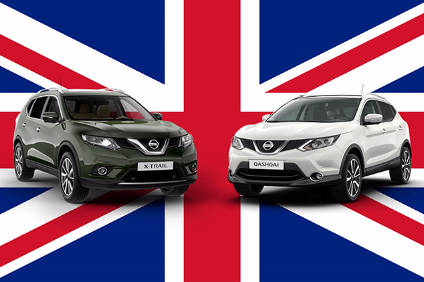
In an interview with the BBC, UK government minister and business secretary Greg Clark said that the UK would be seeking to maintain tariff-free trade in automotive products between the UK and the EU after the UK’s departure from the European Union.
The question of the UK government’s position in its negotiations with the EU has been raised following Nissan’s decision to commit to future investment after receiving ‘assurances’ from the UK government over the future competitive position facing its Sunderland, UK, plant that exports a high proportion of its output to the EU. There has been some media speculation that the assurances may have taken the form of guarantees of support in the event of tariffs under WTO being introduced on UK-EU automotive trade following the UK’s departure from the EU – planned for 2019 following two years of negotiations that begin in early 2017.

Discover B2B Marketing That Performs
Combine business intelligence and editorial excellence to reach engaged professionals across 36 leading media platforms.
Nissan chief Carlos Ghosn had said he would seek compensation if Nissan faced any increase in costs on its UK manufacturing operations because of changes to the UK’s trading arrangements with the EU.
However, Greg Clark said that the UK government will be seeking continued tariff-free trade with the EU for the motor trade, something that could mean staying within the EU’s customs union.
Clark told the BBC that it would not be in either side’s interests for tariffs to exist in the motor industry. “So what I said [to Nissan] is that our objective would be to ensure that we have continued access to the markets in Europe and vice versa without tariffs and without bureaucratic impediments [‘non-tariff barriers’] and that is how we will approach those negotiations,” he said.
He added that as well as seeking a “common ground” in Brexit talks, a letter to Nissan also included commitments to continue to make funds available for skills and training, to “bring home” elements of the supply chain which had migrated overseas, to support research and development, and to keep the UK car industry ‘competitive’.
He also suggested the assurances would apply to the whole of the UK’s car sector but added that “it’s not general”, suggesting that the negotiations might be approached, on the UK side, industrial sector-by-sector.
Recent remarks by UK prime minister Theresa May have been interpreted as suggesting that the UK will leave the EU single market in order to control immigration from other EU countries. That, potentially, would result in tariffs applying to UK goods shipped to the EU (the EU applies a 10% common external tariff to new cars) under WTO rules. However, one possible compromise is a Turkey-style customs union with the EU for the UK – which would avoid the imposition of trade tariffs – although that could impair the UK’s ability to strike free trade deals with third countries. There would also have to be an agreement on non-tariff trade arrangements – customs checks – that could potentially increase trade costs beyond the current single market free circulation regime.






